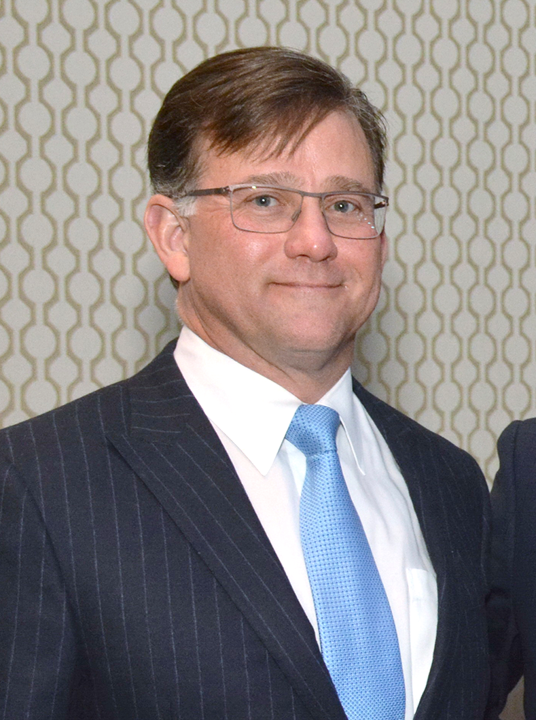|
President’s Message:
Aug. 2021 Some physicians prefer to work at a hospital. You are taken care of – protected to a large degree. But the kind of people I see in independent practice are often audacious, self-reliant, and resilient. Resilient. That really says it all. Little did I know how resilient my partners, practice, and I would have to be to weather this past year. I have endured dozens of hurricanes, tornados, floods, and one of the higher penetrations of covid, and nothing compares to what we went through in February of this year. It all started on Friday, February 12th. We had news of an impending storm and we announced that the office would be closed that Monday. Then came one catastrophe after another. Some areas of the city had power, others didn’t. More ice storms came. Some areas started seeing water main breakages. Our group held nightly Zoom meetings to discuss the possibility of opening on each of the following days. On Sunday night’s call we agreed we made a good decision about closing for Monday. It was a challenge for people to come into work. The roads were a disaster. By Monday afternoon we saw how bad things were. The power outages started Monday night. We knew there was no way we could open Tuesday. By Wednesday, our water was out, our power was out, and we realized we were in this for the long haul. Most of the partners were not able to leave their houses. The Red River winds through the middle of Shreveport. The bridges were closed at all points making it impossible to get from one side of town to the other. One of the partners on the other side of the river couldn’t have come in to work even if he wanted. I spend a lot of time in the mountains, so I have a good bit of experience driving on sub-prime roads. And, I live close enough to the hospital that I was the obvious choice to go in. My all-wheel drive vehicle allowed me to be the one person in the group who was able to somewhat dependably get out, so I covered the hospital for the full period. At this point, the hospitals could not even perform emergency cases. I did rounds every day but the few emergency cases we had were put on hold because we didn’t want to do them with sub-standard sterilization. Remember-no water. They had generators to make up for the lack of electricity, but the disruption of the public water supply was a complete surprise. The extended deep freeze along with the ice on the ground caused water mains to rupture. No one realized that was a vulnerability. This is, after all, the Deep South. The hospitals were using alcohol washes to sterilize instruments between cases. Only the most dire of emergencies would be sent to the O.R. These conditions persisted through Friday, February 19. Finally, one of the hospitals procured a water scavenger system that would recycle and sanitize their wastewater. It felt like working in the third world. Or worse. We all know that worldwide, fresh water is one of the most valuable resources. Here in the US, we take it for granted. The lack of fresh water can bring everything to a halt in an instant. So even if roads were clear and the power came back on, we would not be able to reopen unless we had running water. Imagine my surprise during the first three days of that week, we still had intrepid patients trudging up to the office for their yearly checkup. I’d be there checking for broken pipes and there would be patients who were angry that we were closed! We wanted to keep our staff in the loop as to the status of our office closings. But communication to staff was hit and miss. We have an all-staff text group, but cell service was unreliable due to cell tower damage. Some of the local internet service providers also had issues with their infrastructure as well. So, we did our best to send out e-mails and texts and hope that they went through. For the most part, people hunkered down and waited for information. Reopening was slow. It was like an engine coughing back to life. We didn’t know if we could count on people to return to work if they were dealing with communication or transportation issues of their own. And when they did come in, people would be asked to pitch in to do whatever needed to be done, not just their regular job. I’m very proud of my staff coming together to go above and beyond their normal call of duty. It was a bonding experience for us all. It was a bonding experience for the whole region. I share my story because I know my ordeal is not unique. I’m fully aware that there are sections of the country that encounter similar difficulties from time to time whether it be severe weather, earthquakes, flooding, wildfires or cyberattack. And of course, during COVID, many LUGPA practices were mandated to close and rethink the way they did business. But we persist. The past few years, more physicians than ever have left independent practice. The LUGPA numbers stay fairly stable. I cannot say why anyone has left independent practice. I can say why LUGPA membership is stable: we are the resilient, and we stand for something. The Greek philosopher Epictetus is quoted as saying, “It's not what happens to you, but how you react to it that matters.” What I love about LUGPA is the way our practices come together to talk about our experiences and difficulties and offer each other solutions and share ideas.
|





